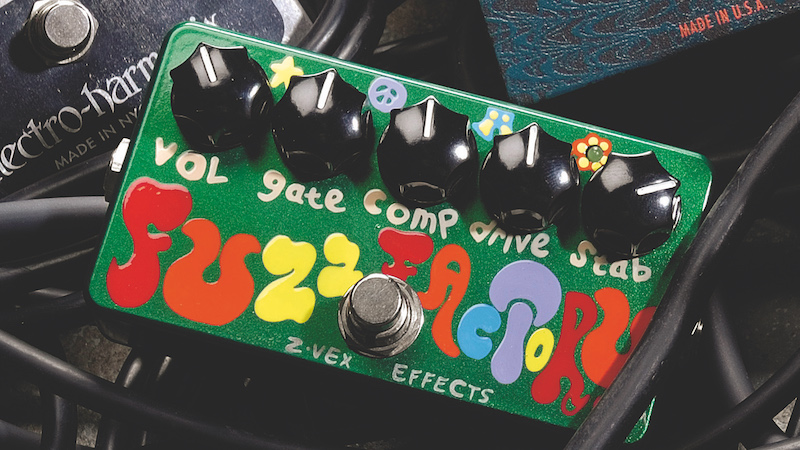5 songs guitarists need to hear by… The Black Keys' Dan Auerbach
Where to start with the lofi bluesman who rose to arena-level

One half of The Black Keys; producer, songwriter, singer and guitarist Dan Auerbach's playing is deeply rooted in the blues but showcases a fascinating evolution that has taken in diverse influences. His band's discography and solo work stands as testament to it.
Auerbach’s catchy riffs and vocal melodies alongside drummer Patrick Carney’s hard-hitting rhythms have created a fascinating collection of albums from one of the greatest musical duos in rock history.
Here's five highlights of Dan Auerbach's story so far…
Billy Saefong is a writer for Guitartricks.com
1. Breaks (The Big Come Up, 2002)
The Black Keys started when guitarist and vocalist Dan Auerbach joined forces with drummer Patrick Carney in their hometown of Akron, Ohio in 2011. Their inspirations and musical goals were something between making their songs sound like broken speakers mixed with Wu-Tang Clan style skits.

“There’s something about playing that electric guitar real loud that feels like home"
For their debut album The Big Come Up, there are a number of tracks that showcase both their hip-hop and blues influences simultaneously; Breaks being a prime example.
Auerbach plays a mean riff, distorted with fuzz that perfectly accent Carney’s drums. This song, along with the rest of that album established Auerbach as a true student of the blues, but one who was keen to develop the genre.
Get the MusicRadar Newsletter
Want all the hottest music and gear news, reviews, deals, features and more, direct to your inbox? Sign up here.
2. Hard Row (Thickfreakness, 2003)

This song accentuates Auerbach’s ability to create heavy riffs that are impossible not to tap your toe to. Thickfreakness is only the second album from the duo, however, by this time they’d refined their lo-fi blues sound, tracking in Carney's basement to an old 8-track recorder.
Hard Row's solo features a guitar solo that is cooked up from only a handful of screeching notes, but is a perfectly executed statement. This dirty fuzz blues sound extends throughout the rest of the album and would play a key part in Auerbach’s signature sound for many years to come.
3. Mad Monsoon (Keep It Hid, 2009)

After many years of touring and a couple more albums as part of The Black Keys, Auerbach would release an underrated solo album with this as a highlight.
It features a more refined guitar tone when compared to his previous work, but some would argue that it’s actually quite refreshing and interesting to hear a song like this from Auerbach.
There's a tension here created by a guitar that is is constantly shaking and wailing with a raw edge. It’s as if they took a Keys song, slowed it down, and compressed the fuzz a little. It’s a standout on Auerbach’s already standout first solo outing.
4. Dollaz & Sense, (Blakroc, 2009)
This Black Keys side project is often overlooked and came as a result of Keys fan Damon Dash reaching out to the duo with a suggestion to record with hip hop artist Jim Jones in Brooklyn.
Those sessions expanded into an album with other celebrated hop hop artists including Mos Def, Pharoahe Monch, Wu Tang members RZA, Raekwon and the late Ol' Dirty Bastard.
Here RZA and Auerbach both contribute biting, infectious guitar licks to create this album highlight. Auerbach's vocal and collaborative talent moving from the context of a duo to a bigger studio ensemble with ease. Check out the video above for the short documentary on how it all came together.
5. Little Black Submarines (Turn Blue, 2014)

Black Keys frontman on Duane Eddy, Mark Knopfler and new solo album Waiting On A Song
Perhaps, the best song The Black Keys have yet composed, Little Black Submarine is a song in two halves.
First it begins restrained with Auerbach’s finger picking on a resonator guitar. Up to this point, the majority of the band’s songs have been loud, and full of grit, with only a handful being slow or quiet enough to feature fingerpicking.
The fingerpicking is rich, precise and full of dynamics. Auerbach's sense of the latter shines here; changing pace in service to the ebb and flow of the song.
All of this is true until the half way mark in which the electric guitar comes into play with a roaring riff and a choice licks that call back to the band’s origins.
“Every note counts and fits perfectly”: Kirk Hammett names his best Metallica solo – and no, it’s not One or Master Of Puppets
“I can write anything... Just tell me what you want. You want death metal in C? Okay, here it is. A little country and western? Reggae, blues, whatever”: Yngwie Malmsteen on classical epiphanies, modern art and why he embraces the cliff edge









